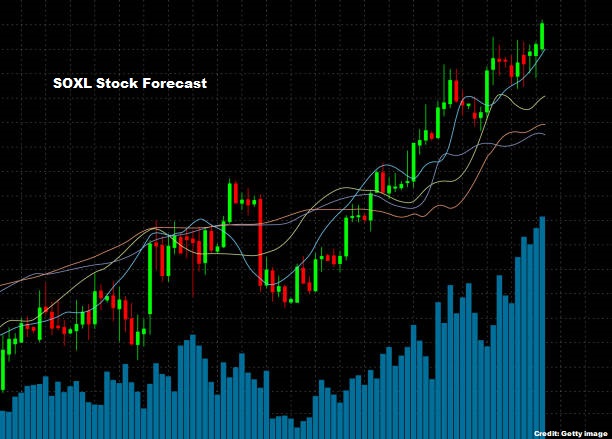SOXL is the ProShares Ultra Semiconductor ETF. It is a leveraged ETF that seeks to track the performance of the S&P Semiconductor Select Industry Index twice, before fees and expenses. The S&P Semiconductor Select Industry Index is a market-cap-weighted index of equity securities of semiconductor companies. The index is designed to measure the performance of the semiconductor industry.
SOXL has a Sharpe ratio of 1.96 and a beta of 2.75. This means that SOXL has historically been more volatile than the S&P 500 Index but has also provided higher returns.
SOXL is a good choice for investors who are looking for high-risk, high-reward investments. However, it is important to note that SOXL is not a suitable investment for all investors.
Here are some of the key factors to consider when investing in SOXL:
SOXL is a leveraged ETF, which means that it is subject to an increased risk of loss.
A leveraged ETF is an exchange-traded fund that uses leverage to magnify its returns. This can be a good way to generate short-term returns, but it also comes with increased risk. For example, if the underlying index falls by 1%, a leveraged ETF that uses 2x leverage will fall by 2%. This means that leveraged ETFs are more volatile than their underlying index and can lose more money than a traditional ETF when the market declines.
SOXL is a leveraged ETF that tracks the S&P 500 3X Daily Leveraged Index, which means that it provides 3x the daily return of the S&P 500. This means that if the S&P 500 rises by 1%, SOXL will rise by 3%. However, if the S&P 500 falls by 1%, SOXL will fall by 3%.
There are a number of factors that investors should consider before investing in a leveraged ETF. First, investors should understand the risks associated with leveraged ETFs. These ETFs are more volatile than traditional ETFs and can lose more money than the underlying index. Second, investors should be aware of the costs associated with leveraged ETFs. Comparing these ETFs to standard ETFs, their expense ratios are usually greater. Third, investors should have a long-term investment horizon when investing in a leveraged ETF. This is because leveraged ETFs are designed to be traded on a short-term basis.
If investors are considering investing in a leveraged ETF, they should consult with a financial advisor to understand the risks and costs involved.

SOXL is highly volatile and can experience significant swings in price:
This means that for every 1% move in the S&P 500, SOXL will move 3%. This can be a very risky investment, as it can experience significant swings in price.
There are a few reasons why SOXL is so volatile. First, it is a leveraged ETF, which means that it uses borrowed money to magnify its returns. This can amplify both gains and losses, making it more likely that SOXL will experience large price swings.
Second, the S&P 500 is a volatile index itself. It can experience significant swings in price, especially during times of market turmoil. This volatility is magnified in SOXL, making it an even riskier investment.
Finally, SOXL is a relatively new ETF. It was only launched in 2010, so it does not have a long track record to look back on. This makes it difficult to assess its risk profile.
Given its high volatility and risk, SOXL is not a suitable investment for most investors. However, it may be a good option for experienced investors who are looking for a high-risk, high-reward investment.
SOXL is not a suitable investment for all investors.
If you are considering investing in SOXL, it is important to do your own research and understand the risks involved.

